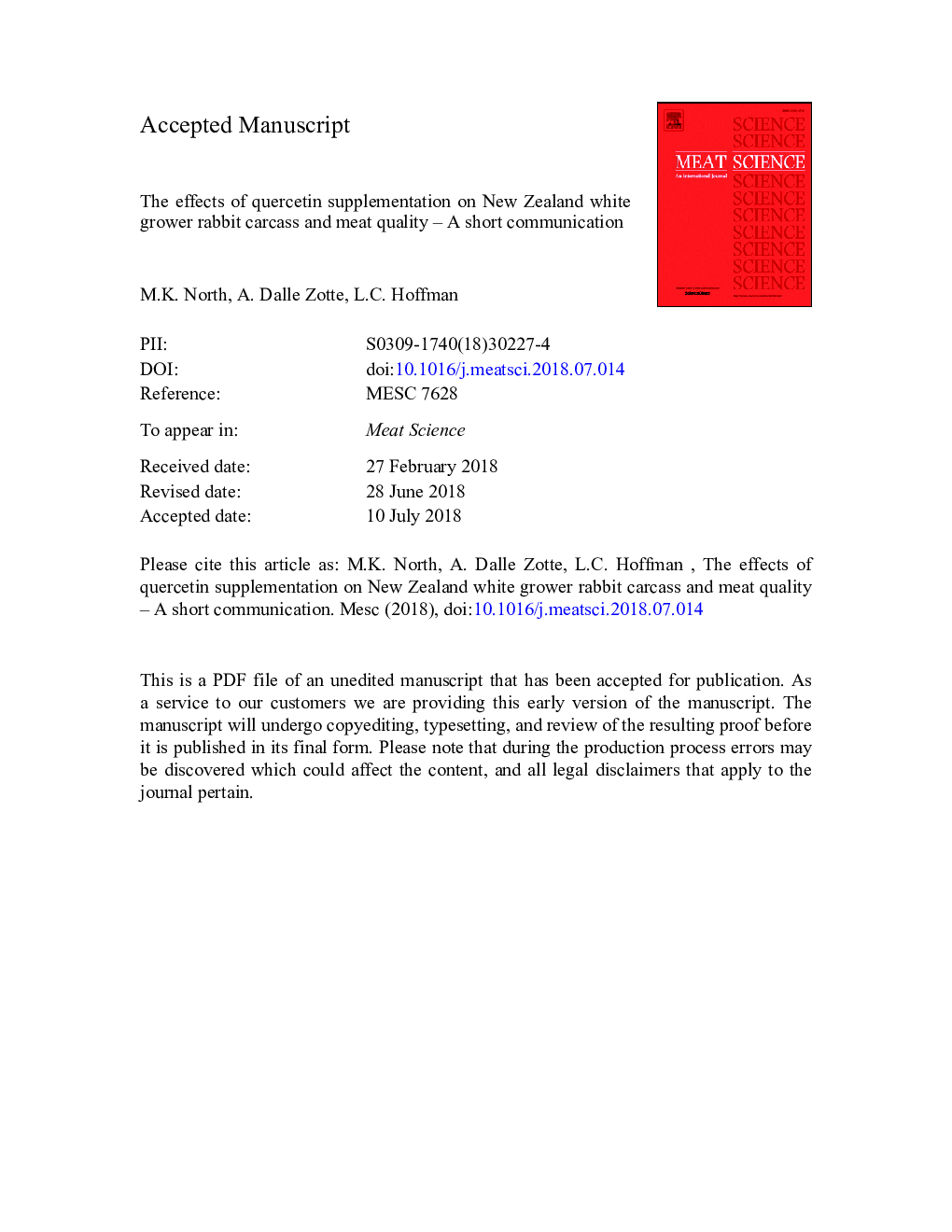| Article ID | Journal | Published Year | Pages | File Type |
|---|---|---|---|---|
| 8502465 | Meat Science | 2018 | 13 Pages |
Abstract
Control and quercetin dihydrate-supplemented (2â¯g/kg) feeds were fed to 32 New Zealand White rabbits (both sexes) from 5 to 12â¯weeks old. Slaughter weight, carcass and organ weights, meat yields and physical and proximate meat quality were determined. Quercetin increased the hindleg meat:bone ratio (Pâ¯<â¯.001) by reducing hindleg bone weight (Pâ¯=â¯.01), contrary to the current understanding of the effect of quercetin on the skeletal system. However, this and the increase in skin weight (Pâ¯=â¯.03) may have been due to the effects of quercetin on connective tissue. Sex affected spleen weight (Pâ¯=â¯.04; female > male), head weight (Pâ¯<â¯.001; male > female), reference carcass yield (Pâ¯=â¯.02, female > male) and loin pHu (Pâ¯=â¯.02; male > female), without commercial implications. Other physical and chemical meat quality traits were not affected by diet or sex.
Keywords
Related Topics
Life Sciences
Agricultural and Biological Sciences
Food Science
Authors
M.K. North, A. Dalle Zotte, L.C. Hoffman,
